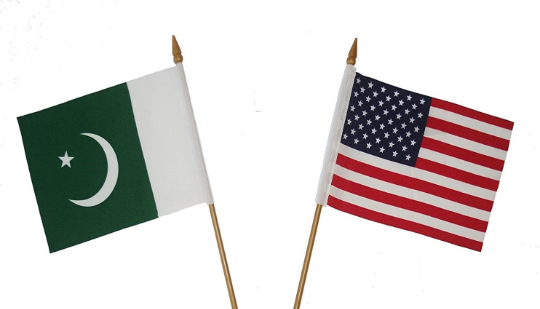Pakistan braces for a post-Trump era
Syed Talat Hussain | 12 November 2020
As the world readies for President Biden, there is both stress and hope in Islamabad
The results of the American elections came out painfully slow. It was torturous to watch the endless regurgitation of anchors mantras about ‘key states’ and repeat of vote maps that for days refused to move. But since the success of Biden’s bid for the presidency was announced, Washington-watchers from Europe to Asia are not wasting anytime preparing to adjust to the likely changes that the new administration can bring about in its outlook on the world. Pakistan is no exception to this exercise, even though a slight tinge of the Trump hangover is still in the air here.
Pakistan’s permanent representative to the UN, Munir Akram, in an interview to an Urdu website has fired the first salvo against the outgoing president on Kashmir, saying his policy was detrimental to Pakistan’s interests as according to him he was too kind to India, Islamabad’s arch enemy. He also put some premium on the incoming Administration’s expected “even-handedness” and posited that a recalibration of Washington’s outlook on India and better appreciation of Pakistan’s strategic weight can bring back the lost bilateral balance.
It is too early to point to the direction the Biden Administration will take in dealing with Pakistan considering the fact that it still has many weeks of transition to pass through and deal with a sour Trump who refuses to accept his defeat. Even afterwards it will be months before Pakistan emerges on Washington’s radar
Prime Minister Imran Khan has expressed similar hopes in his welcoming tweet to the Biden-Kamala duo underlining his keenness to attend the planned global summit on democracy and to work with him to recover the nation’s (implying Pakistan’s) stolen money from corrupt leaders. Interestingly, Kashmir did not find space in the tweet which instead gave more priority to working with the US for peace in “Afghanistan and in the region”.
The omission isn’t as striking as the inclusion of the recovery-of-the-stolen-money item in the bilateral agenda is. Translated in the simple language of national politics this means that wealth of prime minister Khan’s key opponents, Nawaz Sharif and Asif Zardari, remains the prize the present government wants to capture with the help of the new Administration because according to the official narrative here they and their collaborators have enriched themselves at tax payer’s expense.
Global multilateral discussions
How can the Biden Administration assist the Pakistani premier in realising his goal is not clear as there exists no formal mechanism through which the two countries can engage with each other on the subject in any significant way. Other than global multilateral discussion on protocols on recovery of stolen assets the issue has never figured prominently in Pakistan’s ties with the US and there is little or no evidence to suggest that the Pakistan government even brought the matter up for serious debate with the Trump Administration.
For this to have been italicised in the prime minister’s tweet underlines the red lines the government is trying to convey to the Biden Administartion as far as its domestic politics is concerned. In Islamabad concerns are quite high that after the change of the guard in Washington the way Pakistan’s internal affairs were overlooked for more pressing issues like Afghanistan might not remain the same and the new administration could give more centrality to Pakistan’s performance on democratic indices.
Global standards of democracy
Interestingly, the global summit on democracy that prime minister Imran Khan has shown interest in participating aims to take a wholistic view of global standards of democracy by including in its gamut among other things issues like electoral transparency, freedom of press, social media, civil society organisations etc.
It is too early to point to the direction the Biden Administration will take in dealing with Pakistan considering the fact that it still has many weeks of transition to pass through and deal with a sour Trump who refuses to accept his defeat. Even afterwards it will be months before Pakistan emerges on Washington’s radar. Biden is overwhelmed by a vast domestic agenda of governing a conflicted, divided America aggravated by the rising tide of Covid-19 that is breaking infection records.
There is joblessness and economic depression, China, the Middle East, Russia and Europe to focus on. South Asia’s complex dynamics and the working of its politics aren’t really the concerns that the Administration will be turning its attention to in the immediate phase.
However, sooner or later it will and that’s where uncertainties brought about by the departure of the Trump Administration cannot be left unaddressed. It goes without saying that till such time that the new Administration has fully settled down and the principals and drivers of its foreign and defence policy are chosen we will not know how it intends to tackle old allies whose engagement with its predecessor over the past four years was purely transactional and personalised because of the way the Trump family ruled the roost. But the anxieties of the new era are already palpable here in Islamabad. Washington isn’t the only capital shaken by the end of the Trump era.
Syed Talat Hussain is a prominent Pakistani journalist and writer.
This article was originally published on Gulf News.
Views in this article are author’s own and do not necessarily reflect CGS policy.
